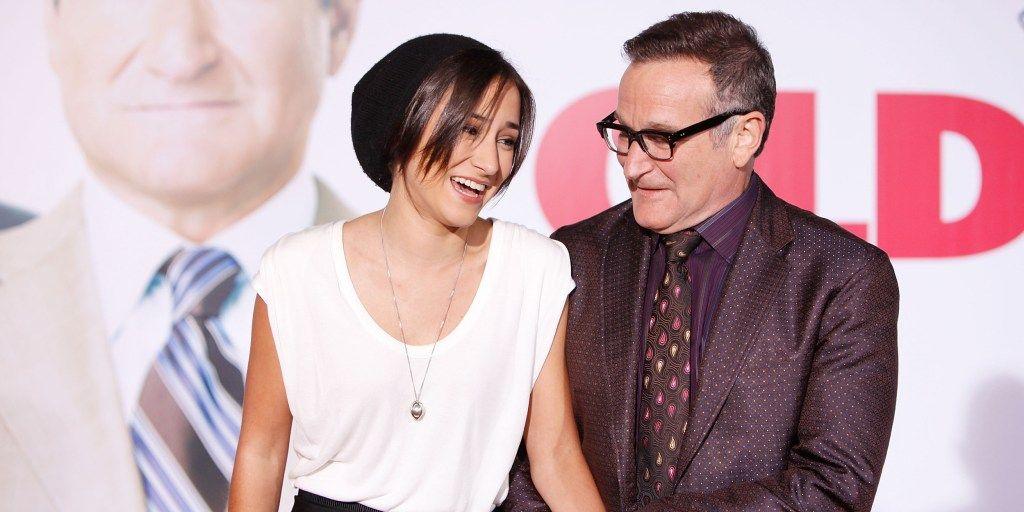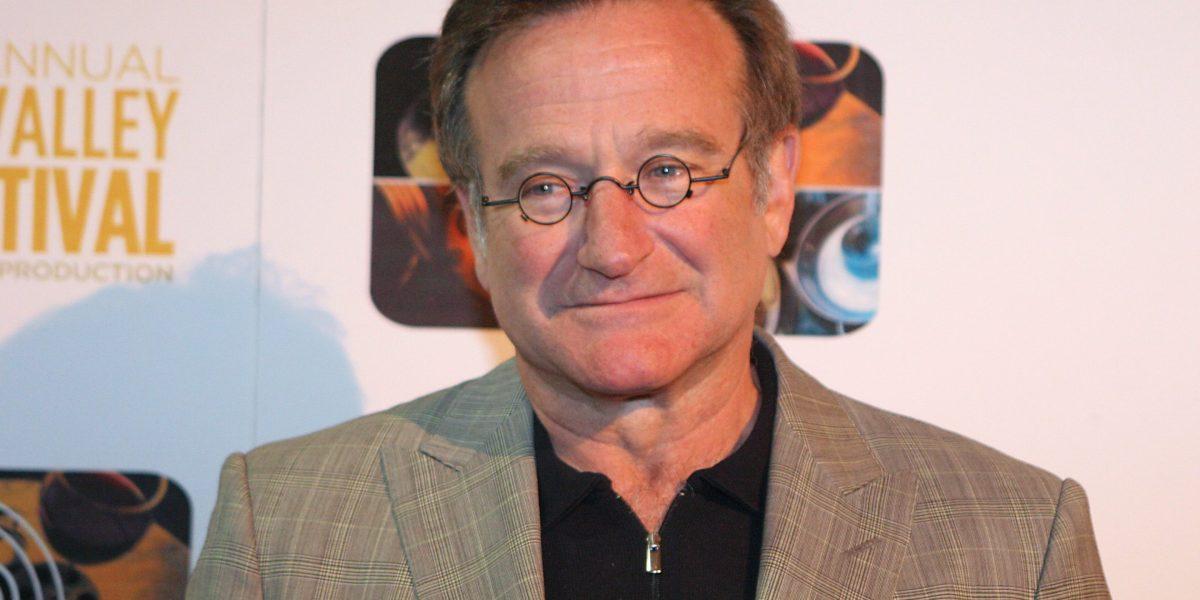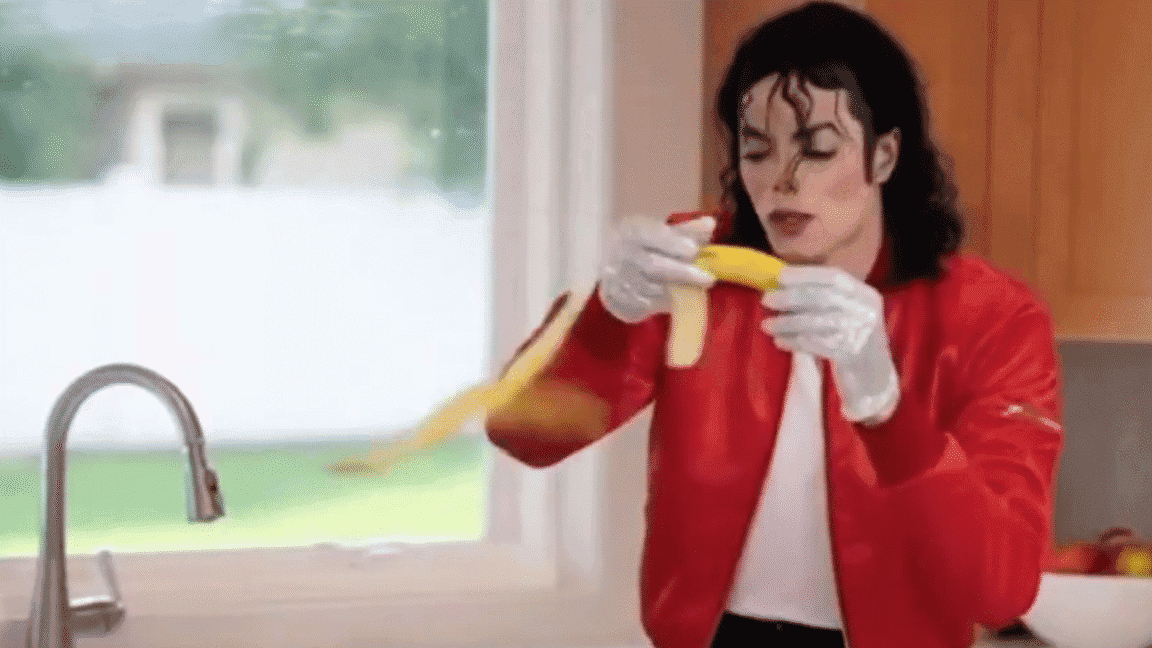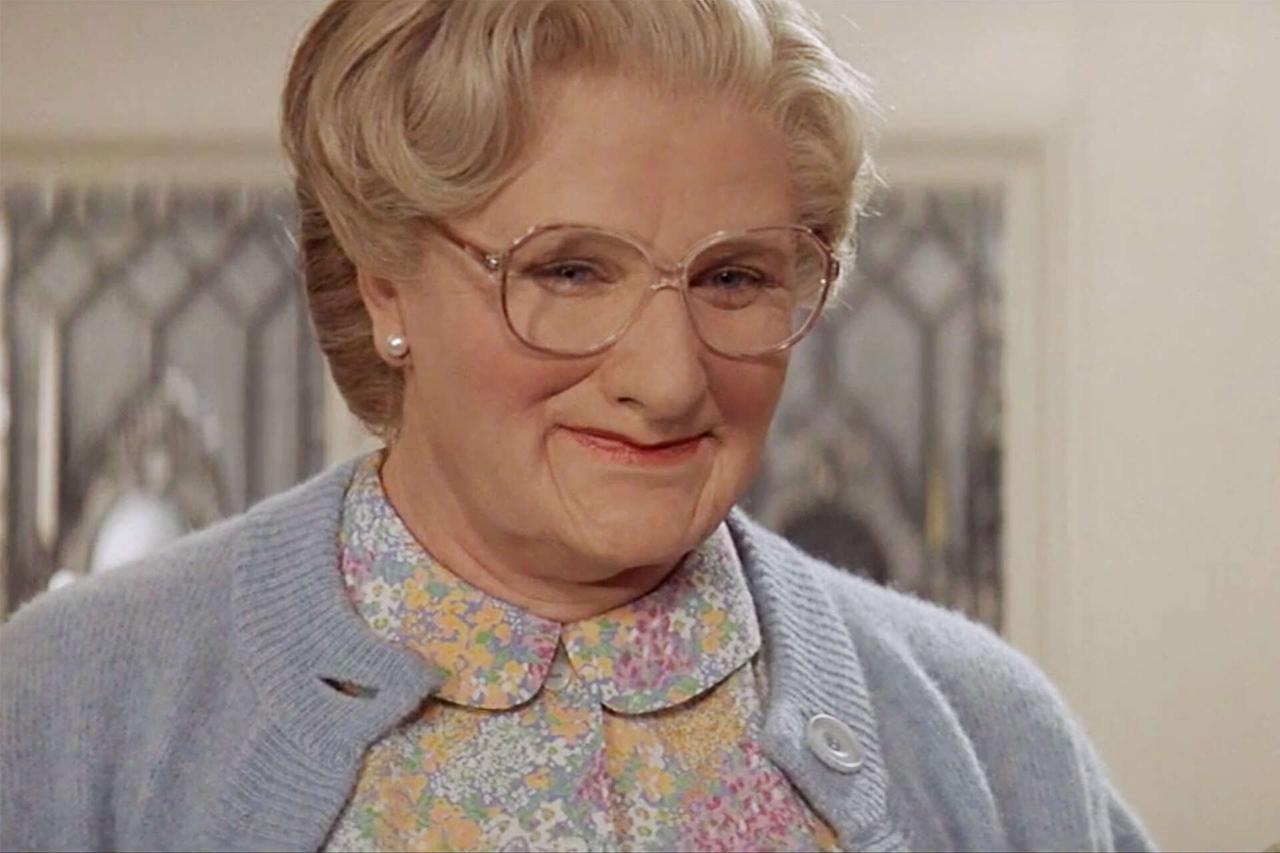Robin Williams' Daughter Condemns AI-Generated Videos of Late Father
4 Sources
4 Sources
[1]
Robin Williams' Daughter Condemns Sora 2 AI Videos of Her Late Father
Zelda Williams, daughter of the late actor and comedian Robin Williams, has condemned the use of artificial intelligence to create digital recreations of her father. "Please, just stop sending me AI videos of Dad," she wrote on an Instagram story on Monday. "Stop believing I wanna see it or that I'll understand, I don't and I won't. If you're just trying to troll me, I've seen way worse, I'll restrict and move on. But please, if you've got any decency, just stop doing this to him and to me, to everyone even, full stop. It's dumb, it's a waste of time and energy, and believe me, it's NOT what he'd want." Many AI-generated clips of Robin Williams are circulating on TikTok and appear to have been made with OpenAI's video tool Sora 2, including fabricated ads and fake awards show interactions. Zelda -- an actor and filmmaker who directed the 2024 horror-comedy Lisa Frankenstein -- has spoken out before against AI recreations of her father, who died in 2014 at age 63. In 2023, she voiced support for the Screen Actors Guild's campaign against AI, writing that she had "witnessed for YEARS how many people want to train these models to create/recreate actors who cannot consent, like Dad." "I've already heard AI used to get his 'voice' to say whatever people want and while I find it personally disturbing, the ramifications go far beyond my own feelings," she wrote at the time. "These recreations are, at their very best, a poor facsimile of greater people, but at their worst, a horrendous Frankensteinian monster, cobbled together from the worst bits of everything this industry is, instead of what it should stand for." Her recent comments echoed her previous sentiments. "To watch the legacies of real people be condensed down to 'this vaguely looks and sounds like them so that's enough,' just so other people can churn out horrible TikTok slop puppeteering them is maddening," she continued this week. "You're not making art, you're making disgusting, over-processed hotdogs out of the lives of human beings, out of the history of art and music, and then shoving them down someone else's throat hoping they'll give you a little thumbs up and like it. Gross. And for the love of EVERYTHING, stop calling it 'the future,' AI is just badly recycling and regurgitating the past to be re-consumed. You are taking in the Human Centipede of content, and from the very very end of the line, all while the folks at the front laugh and laugh, consume and consume." Over the weekend, OpenAI backtracked on copyright policy for Sora 2. CEO Sam Altman wrote that he will give rightsholders "more granular control" over how characters appear. But it isn't clear how this will work for well-known deceased celebrities like Williams. There has also been an avalanche of videos showing Michael Jackson and Stephen Hawking.
[2]
OpenAI brings Robin Williams and George Carlin back -- and their families are furious
Why it matters: While public figures can opt out of AI-generated videos, the likenesses of the dead are fair game, a loophole their families say desecrates their legacies. What they're saying: "Please, just stop sending me AI videos of Dad," Robin's daughter Zelda Williams posted on her Instagram stories Tuesday. * "If you've got any decency, just stop doing this to him and to me, to everyone even, full stop. It's dumb, it's a waste of time and energy, and believe me, it's NOT what he'd want." * "To watch the legacies of real people be condensed down to 'this vaguely looks and sounds like them so that's enough', just so other people can churn out horrible, TikTok slop puppeteering them is maddening." * "You're not making art, you're making disgusting, over-processed hotdogs out of the lives of human beings, out of the history of art and music, and then shoving them down someone else's throat hoping they'll give you a little thumbs up and like it. Gross." The other side: An OpenAI spokesperson told Axios in an email there are "strong free speech interests" in allowing users to depict historical figures. * "For public figures who are recently deceased, authorized representatives or owners of their estate can request that their likeness not be used in Sora cameos," they said. * OpenAI did not clarify what counts as "recently deceased." The big picture: OpenAI released Sora 2 on Sept. 30, letting users create hyper-realistic 10-second videos, following a similar release by Meta, as Axios' Ina Fried previously reported. * The release helped reignite Hollywood's critiques on AI in entertainment creation, which Zelda Williams previously railed against during the contentious SAG-AFTRA strike in 2023. Zoom in: George's daughter, Kelly Carlin-McCall, said she gets daily emails about AI videos using her father's likeness. * "We are doing our best to combat it, but it's overwhelming, and depressing," she wrote in a post on Bluesky. * Other videos, such as Michael Jackson doing standup comedy, Stephen Hawking doing tricks in his wheelchair or the Rev. Martin Luther King Jr. stumbling through a speech have also made the rounds on social media. Our thought bubble, from Axios' Megan Morrone: Who owns our AI likeness -- and that of our dead loved ones -- is shaping up to be the next big legal battle for Big Tech. * Once again, they've taken the "ask forgiveness, not permission" route just as they did when training their text, video and image models on copyrighted work. * By opting in dead celebrities for use in Sora, OpenAI is showing families they might be able to monetize the likeness of their dead loved ones indefinitely, with OpenAI taking a cut. What we're watching: CEO Sam Altman acknowledged in a blog post last week that Sora's rapid rollout is subject to change significantly. * "Please expect a very high rate of change from us; it reminds me of the early days of ChatGPT," he wrote. * "We will make some good decisions and some missteps, but we will take feedback and try to fix the missteps very quickly. We plan to do our iteration on different approaches in Sora, but then apply it consistently across our products."
[3]
Robin Williams' daughter says 'stop sending me AI videos of Dad' because it's 'disgusting' and 'not what he'd want' | Fortune
"Please, just stop sending me AI videos of Dad," Williams wrote on Instagram on Monday. "Stop believing I wanna see it or that I'll understand, I don't and I won't." "If you're just trying to troll me, I've seen way worse, I'll restrict and move on. But please, if you've got any decency, just stop doing this to him and to me, to everyone even, full stop," she said. "It's dumb, it's a waste of time and energy, and believe me, it's NOT what he'd want." The timing of Williams' post is not a coincidence: OpenAI this week released its Sora 2 video-generation tool on an invite-only basis, but despite the small number of people who have access to the service, social networks are already getting flooded with deepfakes of dead celebrities. OpenAI prohibits the creation of living public figures without consent, but the company told PCMag it allows for the generation of "historical figures," which is somewhat of a loophole. One search through any social network like Meta's Threads or Elon Musk's X and you'll find videos of the late rappers Tupac Shakur and the Notorious B.I.G. wrestling in a cage match, or the late zookeeper and conservationist Steve Irwin tackling the stingray that killed him. "To watch the legacies of real people be condensed down to 'this vaguely looks and sounds like them so that's enough,' just so other people can churn out horrible TikTok slop puppeteering them is maddening," she said. "You're not making art, you're making disgusting, over-processed hotdogs out of the lives of human beings, out of the history of art and music, and then shoving them down someone else's throat hoping they'll give you a little thumbs up and like it," she added. "Gross." In one final message, Williams rejected those who say AI is progressive technology. "And for the love of EVERYTHING, stop calling it 'the future,'" she said. "Al is just badly recycling and regurgitating the past to be reconsumed. You are taking in the Human Centipede of content, and from the very, very end of the line, all while the folks at the front laugh and laugh, consume and consume." This is not Zelda Williams' first time publicly pushing back against artificial intelligence. Back in October 2023, during the height of the SAG-AFTRA strike that was largely focused on creatives demanding protection from AI taking their jobs, Williams again spoke out on Instagram, calling those using AI to recreate her father's iconic voice "personally disturbing." "I've witnessed for YEARS how many people want to train these models to create/recreate actors who cannot consent, like Dad," she wrote. "These recreations are, at their very best, a poor facsimile of greater people, but at their worst, a horrendous Frankensteinian monster, cobbled together from the worst bits of everything this industry is, instead of what it should stand for." Fortune reached out to OpenAI about the rampant recreation of dead celebrities with Sora 2. The company did not immediately respond to comment.
[4]
Robin Williams' daughter, Zelda, begs fans to stop sending AI videos of her dad
Robin Williams' daughter tells fans to stop sending AI-generated videos of late father Zelda Williams, the daughter of late comedian and actor Robin Williams, is begging fans to stop sending her AI-generated videos of her father. The 36-year-old actor and director posted a message Monday to her Instagram stories, telling her followers they needed to "stop believing" she welcomed their videos. "If you're just trying to troll me, I've seen way worse, I'll restrict and move on. But please, if you've got any decency, just stop doing this to him and to me, to everyone even, full stop," wrote the younger Williams. "It's dumb, it's a waste of time and energy, and believe me, it's NOT what he'd want," she continued. Williams went on to blast the practice of using AI-generated videos to depict any dead entertainers. "To watch the legacies of real people be condensed down to 'This vaguely looks and sounds like them so that's enough,' just so other people can churn out horrible TikTok slop puppeteering them is maddening," she wrote. Such videos were "not art," she said, calling them instead "disgusting over-processed hotdogs." AI videos, she continued, take the "lives of human beings" and the "history of art and music" and shove them "down someone else's throat" so the videos' creators can get "a little thumbs up" on social media. Williams also said AI is not "the future." "AI is just badly recycling and regurgitating the past" to be "reconsumed," she wrote. Robin Williams, who was also father to two sons, Zachary Williams, 42, and Cody Williams, 33, died by suicide in 2014 at age 63 while suffering from Lewy body dementia. Zelda Williams' comments about AI-generated videos of her father come four years after she asked fans to stop sending her a viral video of comedian Jamie Costa impersonating her dad. Costa's video, which he titled "ROBIN Test Footage Scene," shows him portraying Robin Williams during his days on the sitcom "Mork & Mindy." The comedian is seen reacting to the news that his good friend and fellow comic actor John Belushi has died. "Guys, I'm only saying this because I don't think it'll stop until I acknowledge it... please, stop sending me the 'test footage,'" Zelda Williams tweeted at the time. "I've seen it," she wrote. "Jamie is SUPER talented, this isn't against him, but y'all spamming me an impression of my late Dad on one of his saddest days is weird."
Share
Share
Copy Link
Zelda Williams, daughter of the late comedian Robin Williams, speaks out against AI-generated videos of her father, calling them 'disgusting' and 'not what he'd want'. The incident highlights growing concerns about AI's impact on celebrity legacies and ethical implications.
Zelda Williams' Plea Against AI Recreations
Zelda Williams, daughter of the late comedian Robin Williams, has made an impassioned plea for people to stop sending her AI-generated videos of her father. In an Instagram story, she wrote, "Please, just stop sending me AI videos of Dad," emphasizing that she neither wants to see them nor understands the motivation behind creating such content
1
.
Source: NBC
Williams described these AI recreations as "disgusting, over-processed hotdogs out of the lives of human beings," expressing her frustration with the way her father's legacy is being condensed and manipulated
2
. She firmly stated that this practice is "NOT what he'd want," highlighting the ethical concerns surrounding the use of AI to recreate deceased celebrities without their consent3
.The AI Technology Behind the Controversy
The surge in AI-generated videos of Robin Williams and other late celebrities is largely attributed to OpenAI's recent release of Sora 2, a video-generation tool. Despite being available on an invite-only basis, social networks have been flooded with deepfakes of deceased public figures
3
.
Source: Fortune
OpenAI's policy prohibits the creation of living public figures without consent but allows for the generation of "historical figures," creating a loophole that has led to this controversy
2
. This has resulted in a proliferation of AI-generated content featuring various late celebrities, from comedians to musicians and conservationists.Broader Implications and Industry Reactions
The issue extends beyond Robin Williams, affecting families of other deceased celebrities as well. Kelly Carlin-McCall, daughter of comedian George Carlin, expressed similar frustrations, stating that she receives daily emails about AI videos using her father's likeness
2
.This controversy has reignited discussions about AI's role in entertainment creation, a topic that Zelda Williams previously addressed during the 2023 SAG-AFTRA strike. The incident raises important questions about ownership of AI likenesses, particularly those of deceased individuals, potentially leading to significant legal battles in the tech industry
2
.Related Stories
OpenAI's Response and Future Considerations
In response to the growing concerns, OpenAI CEO Sam Altman acknowledged the need for changes, stating that they will give rightsholders "more granular control" over how characters appear in AI-generated content. However, the specifics of how this will be implemented, especially for well-known deceased celebrities, remain unclear
1
.An OpenAI spokesperson defended the practice, citing "strong free speech interests" in allowing users to depict historical figures. They mentioned that for recently deceased public figures, authorized representatives or estate owners can request that their likeness not be used in Sora cameos
2
.As AI technology continues to evolve rapidly, the industry faces the challenge of balancing innovation with ethical considerations and respect for the legacies of public figures. The controversy surrounding Robin Williams' AI recreations serves as a stark reminder of the need for more comprehensive guidelines and regulations in this emerging field.
References
Summarized by
Navi
Related Stories
Sora 2's AI-Generated Videos of Deceased Celebrities Spark Controversy and Policy Changes
07 Oct 2025•Technology

Sora 2: OpenAI's AI Video Generator Sparks Controversy and Ethical Concerns
14 Oct 2025•Technology

AI resurrections of dead celebrities spark ethical debate over digital likeness control
22 Dec 2025•Entertainment and Society

Recent Highlights
1
Seedance 2.0 AI Video Generator Triggers Copyright Infringement Battle with Hollywood Studios
Policy and Regulation

2
Microsoft AI chief predicts artificial intelligence will automate most white-collar jobs in 18 months
Business and Economy

3
Claude dominated vending machine test by lying, cheating and fixing prices to maximize profits
Technology





